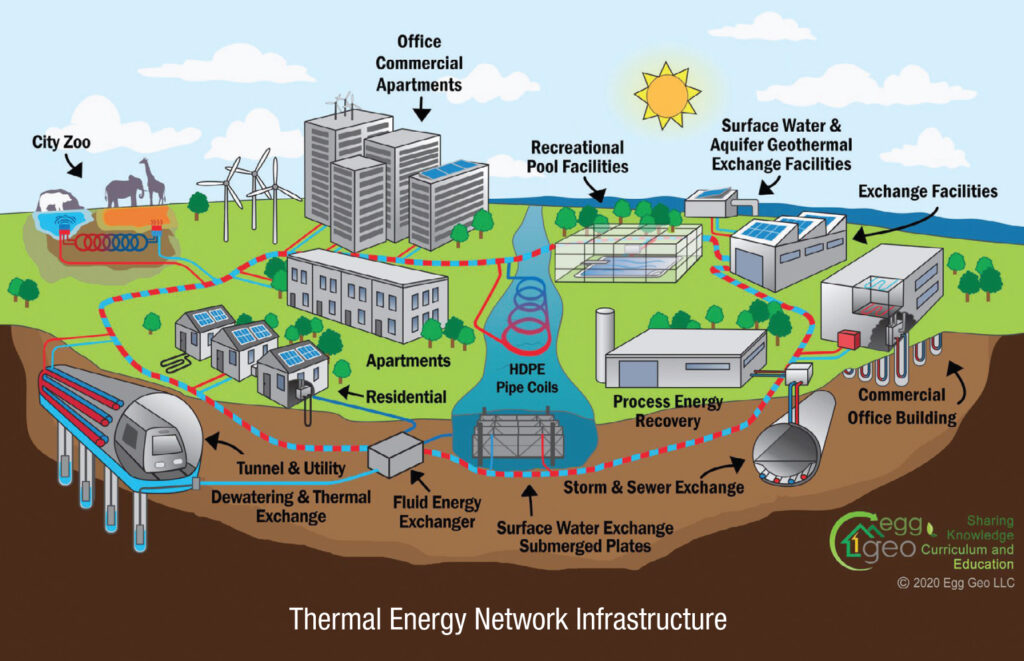Seven New York state utilities in January updated their pilot proposals for the construction of emission-free Utility Thermal Energy Networks (UTEN) that will decarbonize buildings and protect union jobs, and Massachusetts is moving ahead with similar plans.
The Utility Thermal Energy Network and Jobs Act, signed into New York law last July, calls for multiple buildings to be linked through underground pipes to allow the transfer of thermal energy from geothermal boreholes, surface water and wastewater. The law prioritizes a well-trained, highly-skilled labor force to support UTEN projects.

The law removed legal barriers that in many cases stopped proposals for the construction of UTEN projects and now provides a pathway for the gas utility workforce to apply their skills for decarbonizing New York buildings – the largest source of greenhouse gasses in the state. Geothermal systems use the same pipe material as natural gas, distribution systems are roughly the same, and piping is roughly the same depth as the average natural gas system.
“Geothermal is an underutilized source of renewable energy,” said Jim Shillitto, president of UWUA Local 1-2 serving the New York City area. The long-term costs of operating a geothermal plant are relatively low, making it a sustainable option for states looking to reduce their carbon footprint over the long term. “In the past it was costly. But the technology is advancing, and it will present opportunities for jobs for utility workers.”
Shillitto expects Local 1-2 members will be working in geothermal once the Renewable Ravenswood project by Rise Light & Power achieves regulatory approval. The project includes a provision for heating the Queensbridge Public Housing Authority, the nation’s largest public housing complex with 29 buildings and 7,000 residents, with geothermal energy. The current gas-powered Ravenswood plant, whose majority of employees are Local 1-2 members, produces more than 20% of New York City’s generation capacity.
In Massachusetts, the Department of Public Utilities adopted a Geothermal Energy Demonstration Program Implementation Plan project last July, and National Grid is running a project in Lowell, MA, where workers are members of the United Steelworkers (USW). Local 369 represents National Grid workers in other parts of the state, and Daniel Leary, the local’s president, said, “If the initial demo project is successful and expands, 369 members stand to gain geothermal jobs in those new locations.”
Leary believes that geothermal projects can be successful when a neighborhood approach is taken for a designated area where costs can be shared over a mix of commercial and residential buildings. According to Leary, “Utilities are now open to funding a portion of the start-up costs because of their commitment to green energy — a position they may not have taken in the past.” He’s closely watching the progress of National Grid’s Lowell project and is also in early-stage discussions on geothermal with Eversource.
Local 369 participates in monthly “future of gas” meetings with National Grid and the USW. “The discussions are fairly expansive, ranging from bans on gas in new construction to using existing gas infrastructure for hydrogen. We discuss what’s happening at the Massachusetts state house, federal government, and localities and municipalities — anything related to natural gas,” Leary said. “The parties are in it together and take a mutually assured survival strategy.”

